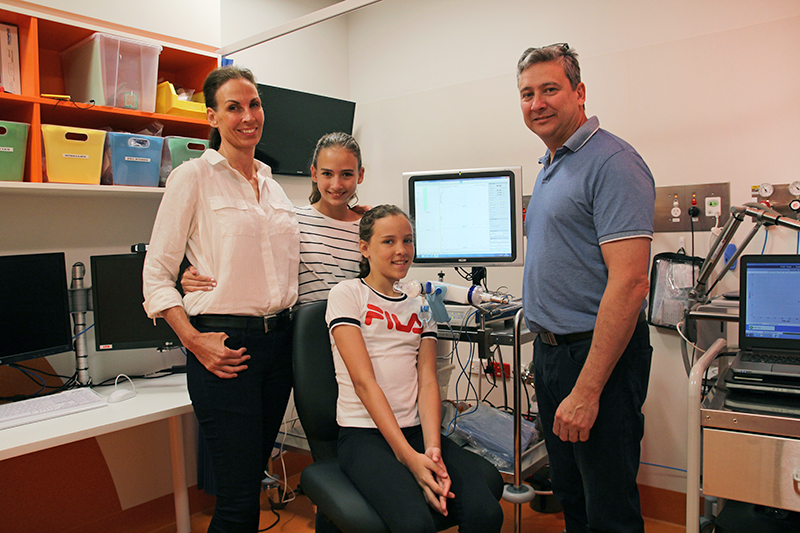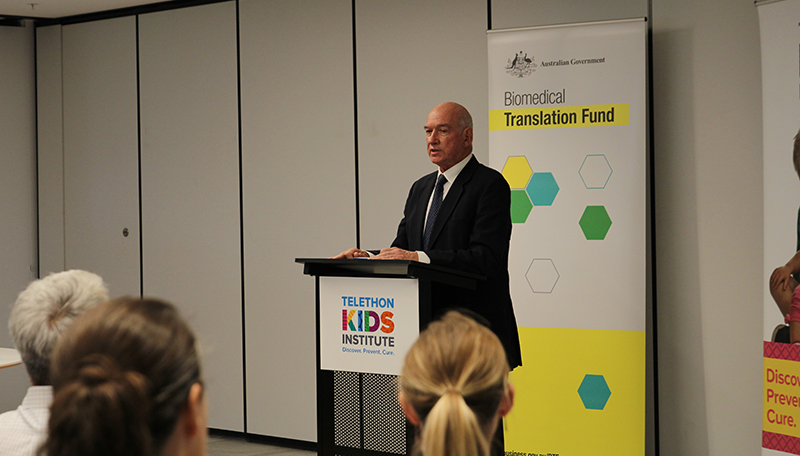Search

News & Events
International clinical trial reduced lung inflammation in young kids with cystic fibrosisPromising results from an Australian-led clinical trial could drastically change the way we care for young children with cystic fibrosis (CF).

News & Events
New drug therapy provides hope for kids with cystic fibrosisThe Kids Research Institute Australia spin-off company, Respirion, received $20 million in funding to develop a promising new therapy.

News & Events
New drug therapy provides hope for kids with cystic fibrosisThe family of two girls with cystic fibrosis are hopeful after The Kids Research Institute Australia spin-off company, Respirion, receives $20 million in funding to develop a promising new therapy.

News & Events
MRCF launches Perth-based biotech developing new treatment for Cystic FibrosisA The Kids Research Institute Australia spin-off company has received $20 million from the Medical Research Commercialisation Fund to develop a promising new therapy for the treatment of Cystic Fibrosis.
Research
Cystic FibrosisCystic fibrosis (CF) is the most common chronic, life-shortening genetic condition affecting young Australians. There is no cure but researchers are working to prevent the onset of lung disease.

COMBAT CF is one of two long-standing international trials which have resulted in new early intervention options helping to reduce progressive lung damage in kids living with CF.
Research
Young children with cystic fibrosis and tracheobronchomalacia have longer and more frequent hospital admissionsTracheobronchomalacia (TBM) is characterised by abnormal collapsibility of the trachea and bronchi, often seen in children with cystic fibrosis (CF). This study aims to determine the impact of TBM on hospital admissions in young children with CF.
Research
Lung function testing in preschool-aged children with cystic fibrosis in the clinical settingThis study investigated the nature and prevalence of atypical pain responses in Rett syndrome and their relationships with specific MECP2 mutations.

The Airway Epithelial Research Team is investigating the role of the epithelium in the development of airway diseases including asthma, cystic fibrosis and lung transplant rejection.

News & Events
Watershed approach to improve cystic fibrosis treatmentThe Kids researchers are pioneering an exciting new approach to clinical trials, which aims to fast-track the best treatments for people with rare and complex diseases.
